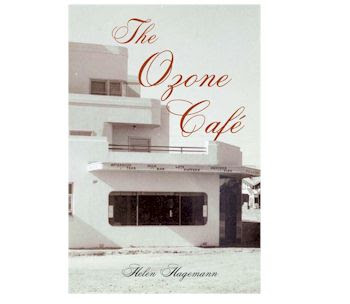A Man Melting is Craig Cliff’s debut collection of eighteen short stories, and with much acclaim has won the 2011 Commonwealth Writers Prize for First Best Book. In the frontispiece of the book, Cliff appears as a high achiever and a globetrotter. Born in Palmerston North, New Zealand, he has accumulated three university degrees, lived in Brisbane & Melbourne, experienced office life in Scotland, swum in piranha-infested waters, slept at 4,200 metres above sea level, tried to write a million words in one year, and learnt there’s not much to do in Liechtenstein.
A Man Melting, the title story, is about a man shrinking to his skeletal form after his total body percentage of water melts away. According to the scientist (a man he seeks help from), ‘the body is ninety per cent water at birth, decreasing when an adult to seventy per cent water. The elderly are about fifty per cent.’ Unlike the horror film The Incredible Melting Man (Sachs 1977), who after radiation melts away in a grotesque ooze of blood, skin and liquid, Cliff’s “man melting” is more like a slow, pristine trickle of water. He has to constantly drink from his water bottle with a straw to stay alive. As well, he has to carry a paddling pool around to catch the effluent. There are many points in the narrative when you recognize the author’s black humour, yet there is a serious undertone - a character’s identity crisis; in his other stories the exempla of the underdog or weirdo kid who gets picked on. Evolution or more poignantly “the struggle for existence” (Facing Galapagos, eg getting Darwin’s emails) are unique and interesting main themes. While many stories are a mixed genre of science fiction/ fantasy /surrealism, in others the author satirizes real life scenarios, especially a failed suicide. In Manawatu a young man jumps off a building to catch the attention of his brother, only to find that from one level up, he lands safely on his auntie’s lawn, no bones broken; glad he can still feel his blood pumping.
Other highlights of this collection include Copies, about a young man recalling his late father’s obsession with photocopying images until they shrink beyond recognition. Fat Camp's minor character Barry is endearing, but would have like more of him. Another Language and The Sceptic's Kid are by far the best stories in the collection. A theme of sadness and non-communication show the effects of migration from tyranny. Themes of hidden pedophilia are subliminal in The Sceptic’s Kid when a boy doesn’t like his adopted uncle touching him, and where the same boy researches his mother’s ideology as a "TV sceptic". Juxtaposed with what is believable vis-à-vis what may be unbelievable, the children witness an extinct Moa; a flightless bird that the mother argues does not exist.
Some of the weaker stories are possibly Cliff’s pet projects on childhood and school days; an imaginary friend named Groucho in Seeds, and the idiots and school gangs in The Tin Man , but this is only a minor criticism. A Man Melting is well worth a look from a new author.
Helen Hagemann (c) 2012

















0 comments:
Post a Comment